PUBLISHED MAY/JUNE 2021
by
Elly Blue, Marketing and Editorial Director, Microcosm Publishing & Distribution --

Elly Blue
Case Study: How a bunch of small publishers worked together to support each other and try to get their books into readers’ hands.
During the summer of 2020, my friend Rachel Bell and I were on the phone bemoaning the fate of our books that came out that April, just after the United States went into pandemic lockdown.
We had a shared conundrum: overall, book sales were good in 2020—amazing, really—but most anything independently released in those early days of the global emergency sank like a stone. Rachel had been relying heavily on bookstores, course adoptions, social media, and author events to get the word out about Overcup Press’ new release,
Ground Truth. Microcosm’s newest book,
The Courage Party, was planned to hit comics shops, libraries, and schoollibraries. In those early days, when most stores, libraries, schools, and public spaces around the world were shut down, we were both pretty much out of luck.
Microcosm is self-distributed and has a large distribution catalog as well as our published list, and this diversity was our saving grace—we saw an immediate drop in sales to retail stores, but a surge in direct orders on our website from individual readers filled in the void. But publishers like
Overcup, who rely primarily on bookstore sales, immediately started seeing massive returns from their distributors.
Sometime during that phone call, inspiration struck: Other small publishers must be having the same problem. What if a bunch of us worked together to support each other and try to get our books into readers’ hands?
We decided on a sort of homegrown crowdfunding campaign. We would put together a bundle of books, offer them at a discount, and all work together to get the word out. We debated how to focus the bundle, finally deciding on narrative nonfiction published by Portland’s vibrant small press scene. We crossed our fingers and started sending emails inviting other publishers to participate.
The response was enthusiastic. We ended up with eight publishers each contributing a title. Some chose frontlist books that weren’t getting seen amid the pandemic; others selected their backlist titles that needed an extra boost. The lineup includes compelling, personal stories about nature, teaching, gender, immigration, addiction, and business. A few are focused on Portland, Oregon, or the Pacific Northwest, but the scope of topics is global.
We decided on a $100 price for the bundle (the full retail value of all the books is $127) and to run it for the month of September. Microcosm acted as the seller, purchasing copies either from each publisher directly or via their distributor.
We created a page on our website so people could order directly.
We came up with a catchy name: The Read Independent Bundle. Rachel got on the horn and lined up some nice publicity, including a feature in our local daily newspaper. All the publishers promoted the bundle in their newsletters and on social media.
Microcosm is no stranger to the art of bundling books—it’s actually one of our core ways to reach readers directly and to improve our older books’ discoverability within our catalog. We have long created thematic bundles of our published titles for direct-to-consumer sales on our website. We call them “superpacks.” Some of them have serious themes like “Depression First Aid Kit” while others are goofier, like all books with pink covers or with titles beginning with the letter “B.”
Most contain four or five books and are sold at a 20% discount, with a goal of driving sales to our backlist and overstocked books.
We occasionally have a warehouse sale, which isessentially a larger bundle, offered for a discrete time frame. These contain eight to 12 books, at a much bigger discount (sometimes even at cost), chosen entirely based on whatever section of our tiny urban warehouse has become overcrowded.
That said, we usually offer our bundles passively. We had no idea how many bundles to expect to sell in this promotion. So when, on the morning of Sept. 1, we flipped the switch to put this local publishing bundle on sale, sent out our newsletter, and started tweeting up a storm, we were thrilled with the initial response.
The bundle started out with strong sales, and then, a week later, the smoke hit. Our main audience for the bundle was Portlanders, and for two weeks, our entire region was stuck at home, sealing up our doors and windows against forest fire smoke, nervously watching news and weather patterns to see if we’d need to evacuate. Sales disintegrated, but, honestly, that felt like the least of our worries.
In the end, we sold 44 bundles. Not exactly a blowout, but a more than modest success. Considering that most books placed in bookstores sell an average of one copy per store per year, that number looks even better.
Twenty-five percent of those sales took place on the first day of the promotion, and there was another bump in sales in the final week. Next time we do this, we’ll have a shorter window—one or two weeks—to create a sense of urgency and make it feel like more of an event.
By far our biggest challenge with this bundle was managing the supply chain. Because we didn’t know how many bundles we would sell, we didn’t stock up in advance, relying on our publishers and their distributors to replenish our stock as needed. Unfortunately, this is when we learned the lesson that the pandemic had completely disrupted distributors’ warehouses and supply chains: We ended up waiting weeks for some titles to restock and had a few unhappy customers waiting far too long for their bundles. A few publishers were able to drop off a case of their books to sell on consignment and that was truly the way to go.
Another major lesson learned was about price. We offered two options, thinking that a couple of different price points would make the bundle more appealing: four books for $60 or eight for $100. But only two customers took us up on the smaller bundle. Customers were intrigued by the books (they’re all amazing books!), but their purchasing was driven by wanting to financially support the publishers and authors involved.
We’ve known for a long time that no matter what corporate online behemoth booksellers might want you to believe, book consumers are not particularly discount-driven. For example, we offer a sliding scale on our published titles on our website, and shoppers are consistently just as likely to pay 20% more than cover price as they are to take us up on the option to pay 20% less—our average sliding scale book sells at just about the cover price.
We’ve found during the pandemic, as have so many in the book world, that books and the people who create them are profoundly valued in our culture. If there’s anything we want to hold onto out of this difficult year, it’s that.
Here was our lineup:
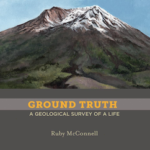 Ground Truth:
A Geological Survey of a Life
Ground Truth:
A Geological Survey of a Life
by Ruby McConnell
A lyrical, scientific memoir of nature and
the aftermath of disaster, published by
colorful, art-forward nonfiction-oriented.
Overcup Press.
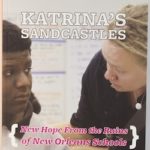 Katrina’s Sandcastles:
New Hope from the Ruins of New Orleans Schools
Katrina’s Sandcastles:
New Hope from the Ruins of New Orleans Schools
by Kaycee Eckhardt
A teaching memoir offered by scrappy,
self-empowerment focused midlist press.
Microcosm Publishing
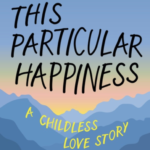 This Particular Happiness:
A Childless Love Story
This Particular Happiness:
A Childless Love Story
by Jackie Shannon Hollis
An affirming memoir of the choice not to
have kids, is the first nonfiction offering
from the joyously literary.
Forest Avenue Press.
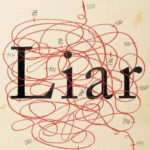 Liar:
A Memoir
Liar:
A Memoir
by Rob Roberge
A wild ride through a rocker’s disintegrating
memory, from groundbreaking, risk-taking, 30-years-strong small press.
Future Tense Books.
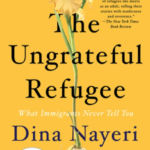 The Ungrateful Refugee:
What Immigrants Never Tell You
The Ungrateful Refugee:
What Immigrants Never Tell You
by Dina Nayeri
The Ungrateful Refugee: What Immigrants
Never Tell You explores what it’s like to be a refugee versus popular misconceptions, brought to us by
Catapult, publisher of award-winning books that celebrate life and facilitate empathy.
 Gender Queer
Gender Queer
by Maia Kobabe
A nonbinary and asexual coming out
memoir in graphic novel form, offered by
the comics visionaries at
Oni Press.
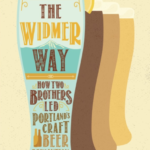 The Widmer Way:
How Two Brothers Led Portland’s Craft Beer Revolution
The Widmer Way:
How Two Brothers Led Portland’s Craft Beer Revolution
by Jeff Alworth
The story of a local business institution
from Portland State University’s
Ooligan Press.
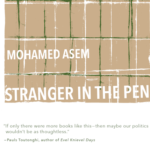 Stranger in the Pen
Stranger in the Pen
by Mohamed Asem
Stranger in the Pen explores with quiet
brilliance the toll of racial profiling, grief,
and connections with home and family,
from the small and mighty megaphone for
personal stories,
Perfect Day Publishing.
Elly Blue is the marketing and editorial director of Microcosm Publishing & Distribution. She’s the author of several books, including Bikenomics: How Bicycling Can Save the Economy
and the forthcoming Dropouts & Runaways: Teens Who Changed the World
.